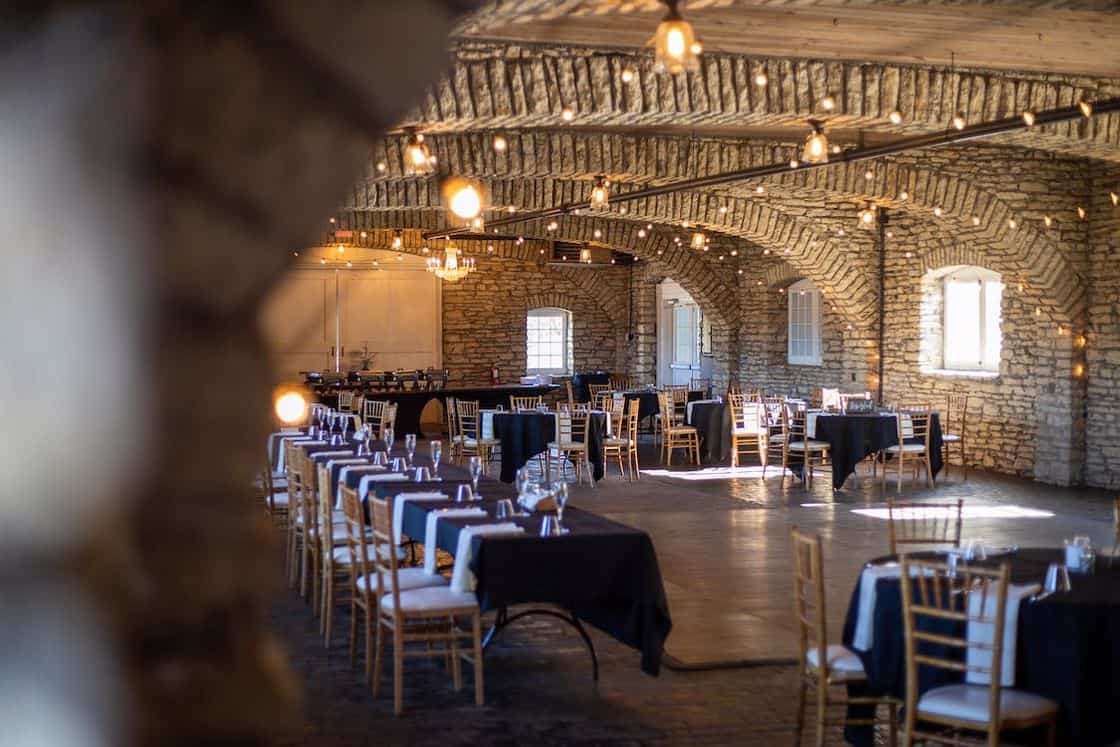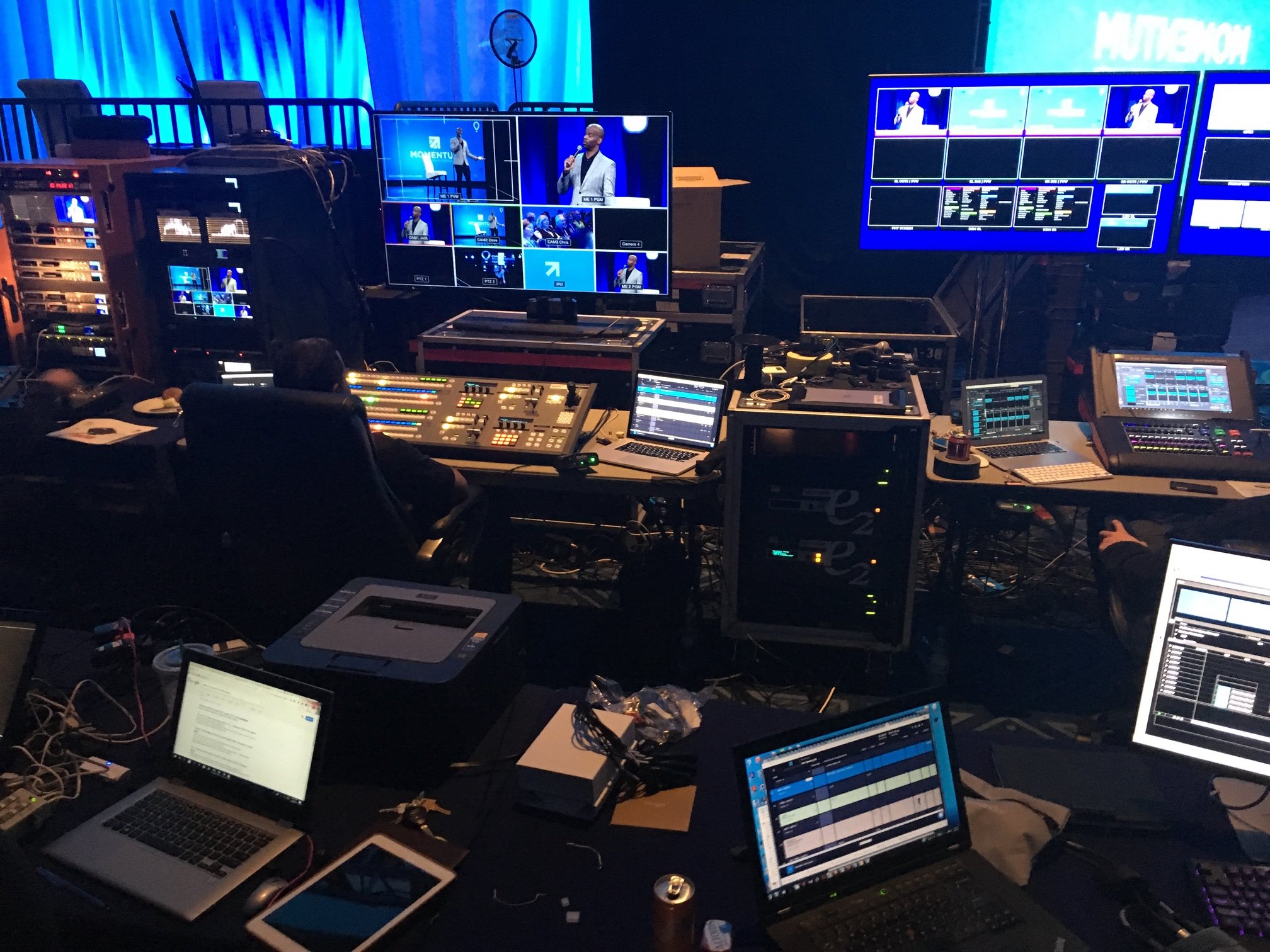Exactly How Event Production Functions: A Comprehensive Check Out the Refine
Event production is a complicated and organized process that needs cautious preparation and implementation. It starts with developing clear goals and comprehending the target audience. Each step, from budgeting to venue selection, plays an important duty in making certain success. As the procedure unfolds, different elements must align flawlessly. The subtleties of this elaborate operation often go undetected. What are the key phases that add to an unforgettable event?

The First Planning Phase
When starting on event production, mindful preparation is vital to ensure a successful result. The first preparation stage acts as the structure for all succeeding initiatives. Throughout this stage, event manufacturers must define the event's purpose and purposes plainly. Recognizing the target audience helps tailor the experience and messaging, assuring relevance and engagement.Producers should also think about the event format, whether it be in-person, online, or crossbreed, as this will influence various logistical elements. Selecting a suitable day and place is crucial, as it influences accessibility and availability.Furthermore, putting together a trustworthy group is essential for splitting duties and enhancing communication. Establishing a timeline with milestones guarantees all jobs are finished on routine. This stage involves extensive research, consisting of identifying prospective challenges and devising approaches to minimize dangers. Eventually, a well-structured initial planning phase establishes the tone for an effective event production journey.

Budgeting and Source Allowance
In event production, effective budgeting and source allowance are essential for success - event production charlotte. Developing financial criteria sets the structure for all subsequent choices, while resource circulation techniques guarantee that every element of the event is properly sustained. Together, these aspects help preserve control over expenditures and enhance the usage of available sources
Establishing Financial Parameters
Establishing economic parameters is essential to the success of any type of event production, as it establishes the structure for effective budgeting and source allocation. This procedure starts with defining the general spending plan, which encompasses all facets of the event, consisting of venue expenses, event catering, and advertising and marketing. By identifying offered funds, event organizers can focus on expenditures and allocate sources as necessary. Furthermore, it is necessary to perform extensive market study to anticipate potential expenses and determine financing sources, such as sponsorships or ticket sales. Establishing clear monetary criteria additionally aids in risk administration, enabling organizers to allot backup funds for unexpected costs. Ultimately, a well-defined budget serves as a roadmap, guiding the event production group towards accomplishing their objectives while keeping financial control.
Resource Distribution Methods
Efficient source distribution methods are crucial for making best use of the influence of an occasion while sticking to spending plan restraints. Effective event production needs a careful technique to budgeting and resource allotment. Planners must focus on crucial components such as location, food catering, and innovation, making sure that funds are assigned to areas that enhance attendee experience. A comprehensive budget needs to lay out anticipated expenses and identify locations for prospective cost financial savings, such as discussing with vendors or exploring sponsorship possibilities. Furthermore, tracking expenditures throughout the preparation process helps protect against overspending. By using strategic source distribution, event producers can supply a memorable experience while maintaining monetary obligation, ultimately adding to the general success of the event.
Venue Option and Logistics
Selecting the appropriate location is important to the success of any kind of event, as it sets the stage for the overall experience. Location selection includes evaluating different factors, consisting of capacity, access, and location. Coordinators must take into consideration the target audience and the nature of the event, making sure the venue lines up with the event's goals.Logistics play a substantial function in this procedure, involving plans for seats, audiovisual equipment, and providing solutions. A well-chosen location must facilitate smooth flow for attendees and staff, enhancing engagement.Additionally, evaluating prospective venues for facilities like car park, restrooms, and emergency situation exits is crucial for safety and security and benefit. The timeline for protecting the place is additionally crucial, as prominent areas may book rapidly - event production charlotte. Complete preparation and prompt implementation can inevitably contribute to a seamless event experience, making venue selection and logistics fundamental components of successful event production.
Creative Concept Growth
While the place establishes the physical phase, imaginative principle advancement forms the event's identity and narrative. This process starts with recognizing the event's objective and target market, permitting event manufacturers to develop a compelling style that resonates with attendees. Conceptualizing sessions commonly consist of diverse viewpoints, cultivating cutting-edge ideas that align with the event's goals.Once a theme is developed, aesthetic components such as shade combinations, signage, and decor are made to boost the general atmosphere. Narration methods may additionally be incorporated to create an engaging trip for participants, guaranteeing a remarkable experience. Furthermore, factors to consider pertaining to amusement, activities, and interactive components are straightened with the selected concept, enhancing the style throughout the event.Ultimately, reliable creative concept advancement assurances that every facet of the event functions cohesively, leaving a long-term impact on attendees and meeting the event's goals. This fundamental job prepares for succeeding preparation and implementation stages.
Teaming up With Vendors and Distributors
Effective event production rests on efficient partnership with suppliers and distributors. Choosing reputable companions, working out contracts efficiently, and making certain timely distributions are crucial action in this process. Each of these aspects adds greatly to the general success and smooth implementation of an event.
Choosing Reliable Allies
How can event organizers assure a seamless production Read Full Article experience? Choosing trusted partners is necessary in achieving this goal. Event coordinators have to conduct thorough research study to recognize vendors and vendors with a tried and tested record of quality. This includes inspecting recommendations, reviewing portfolios, and examining customer responses. Coordinators need to focus on partners who show expertise, prompt interaction, and a determination to team up. Structure solid partnerships cultivates trust fund and enables fast problem-solving during the event. Additionally, it is useful to select regional suppliers who comprehend the location and regional logistics. Eventually, a successful event rests on the synergy between planners and their partners, ensuring that every aspect of production runs efficiently and successfully.
Negotiating Contracts Effectively
Effective settlement of contracts is a vital action in the collaboration between event planners and their suppliers and distributors. This procedure includes clear communication of expectations, deliverables, and timelines. Organizers need to perform complete research study on market rates and sector criteria to establish a baseline for arrangements. It is necessary to create a collective ambience, urging open dialogue about terms, pricing, and prospective backups. Organizers ought to also you could try these out prioritize recognizing the supplier's capabilities and constraints to align their demands successfully. Flexibility can bring about mutually advantageous arrangements, promoting lasting connections. Crafting distinct contracts that consist of particular efficiency metrics can help assure accountability, inevitably resulting in effective event execution and fulfillment for all parties included.
Ensuring Timely Distributions
Timely shipments are essential for the smooth execution of any kind of event, needing thorough collaboration between organizers and their vendors and providers. Reliable interaction is important, as it assists develop clear assumptions relating to distribution routines, amounts, and particular demands. Planners commonly create comprehensive timelines to outline important landmarks, making certain all parties stay lined up throughout the procedure. Normal check-ins with suppliers can help identify potential delays early, permitting positive options. In addition, constructing solid relationships with trusted suppliers fosters count on and accountability, which can lead to better service and prioritization. By prioritizing these collaborative efforts, planners can decrease interruptions, thus improving the general effectiveness of event production and guaranteeing that all required materials and solutions get here as intended.
Advertising and Promotion Approaches
While arranging an occasion, the success of advertising and promo strategies can considerably affect participation and interaction. Efficient approaches often include a combination of digital advertising, standard advertising, and grassroots outreach. Using social networks platforms permits real-time communication and targeted advertising and marketing, getting to certain demographics successfully. Email advertising projects can additionally engage potential participants with tailored content and reminders.Collaborations with influencers or industry leaders can additionally improve reputation and broaden reach. Developing interesting material, such as video clips or blogs, helps to produce buzz and sustain passion leading up to the event. Furthermore, leveraging early-bird discounts and exclusive rewards can incentivize ticket purchases.Promoting with standard channels, such as posters or regional media, stays relevant, particularly in community-focused this hyperlink occasions. An extensive approach that incorporates multiple strategies warranties optimum visibility and engagement, ultimately adding to the event's success and the creation of an unforgettable experience for participants.
On-Site Execution and Monitoring
On-site execution and management are necessary parts that identify the overall success of an event. Effective coordination during the event guarantees that all components straighten with the intended schedule. Event supervisors manage logistics, consisting of vendor coordination, equipment arrangement, and visitor services. Keeping an eye on timelines and resolving any type of unforeseen concerns are basic for preserving a smooth experience.The personnel plays a significant function, as skilled personnel are accountable for different tasks such as registration, details dissemination, and technological support. Interaction amongst team participants is essential; it cultivates a collaborative atmosphere and allows fast resolution of challenges.Additionally, security methods must be followed, securing the well-being of all participants. Post-event assessments are also component of on-site administration, giving understandings for future improvements. By concentrating on these facets, event manufacturers can create remarkable experiences that fulfill or exceed attendee expectations while achieving the event's objectives.
Often Asked Inquiries
Exactly how Do I Choose the Right Event Style?
Choosing the appropriate event motif involves taking into consideration the target audience, event purpose, and venue. Looking into existing fads and collecting input from stakeholders can likewise influence innovative ideas that reverberate and develop an unforgettable experience.

What Prevail Mistakes in Event Production?
Usual blunders in event production often consist of inadequate preparation, poor interaction amongst group members, spending plan mismanagement, ignoring to think about the audience's demands, and failing to carry out an extensive post-event evaluation for future enhancements.
Just How Can I Measure Event Success?
To determine event success, one can assess attendee complete satisfaction, involvement degrees, budget adherence, and post-event comments. Secret performance signs, such as ticket sales and social media sites communications, additionally provide valuable insights into overall effectiveness.
What Should I Do if It Rains on the Event Day?
In case of moisten the day, the coordinator should implement backup strategies, such as safeguarding outdoors tents or moving activities indoors. Communication with guests regarding modifications is necessary to ensure a smooth experience despite weather challenges.
How Can I Ensure Attendee Interaction Throughout the Event?
